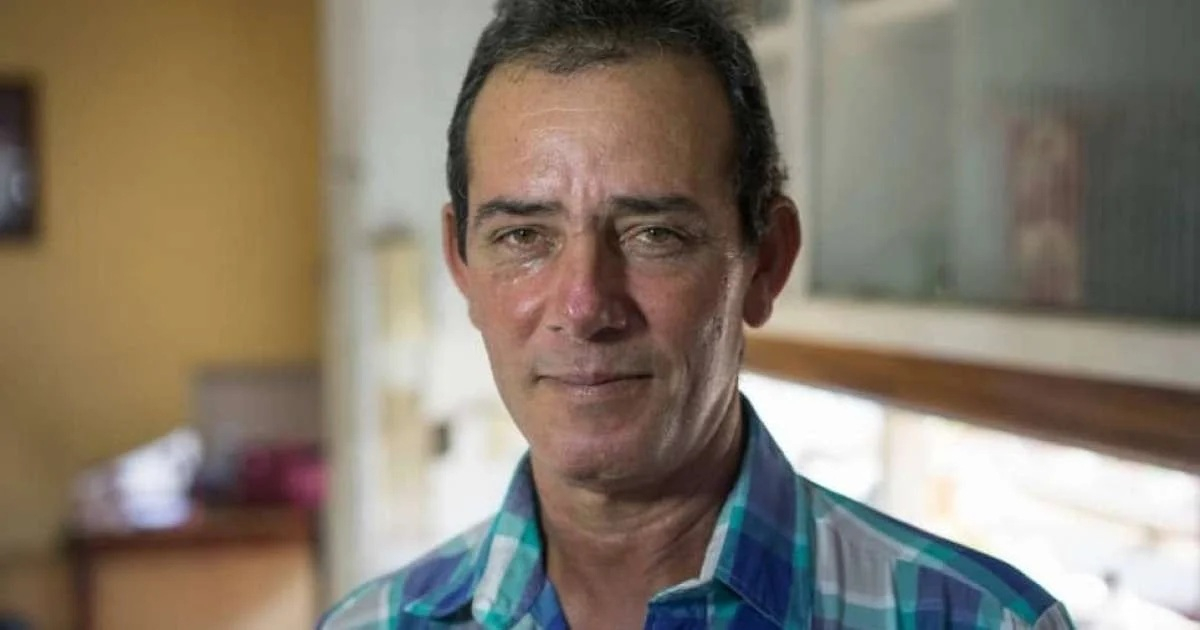
Related videos:
The independent journalist and former Cuban political prisoner Lázaro Yuri Valle Roca is facing an imminent risk of deportation in the United States due to the recent implementation of more restrictive immigration measures by the Donald Trump administration.
Valle Roca, who was imprisoned for nearly three years, left the country in June 2024, after his wife, Eralidis Frómeta, arranged at the U.S. Embassy in Havana the possibility of obtaining humanitarian parole.
Now, it could be affected by the cancellation of the parole programs for foreigners from Cuba, Haiti, Nicaragua, and Venezuela, as well as for their immediate family members, announced by the U.S. Department of Homeland Security (DHS) on March 25.
In a message posted on his Facebook profile, Valle Roca expressed his distress over the possibility of being deported and reaffirmed his opposition to the Cuban regime.
"Well, brothers, friends, and supporters, how sadistic life can be at times. They want to send us back to death, but we have FAITH in God, our father, and in all our brothers and friends. If they return me to my beloved Homeland, I will enter as always shouting #DownWithTheCubanDictatorship," the journalist wrote.
The decision to revoke the humanitarian parole programs is in response to the Executive Order 14165 by President Donald Trump, issued on January 20, 2025, which directs the securing of the border and the termination of these programs.
According to the notice from the Department of Homeland Security (DHS), the decision to eliminate this immigration benefit could impact thousands of exiles, including journalists and activists persecuted by authoritarian regimes, such as the case of Valle Roca.
Precisely, this Friday it was made known that the DHS has begun sending notifications to beneficiaries of humanitarian parole, informing them that they must leave the country before the expiration date of their status.
According to recent reports, the official notice states that those who do not comply with voluntary departure may face expedited deportation proceedings. This measure has generated alarm within the Cuban exile community, which fears a wave of expulsions without guarantees of protection for political refugees.
"Your probation will end on the earliest of the following dates: (1) the expiration date of your original probation or (2) April 24, 2025. You must leave the United States now, but no later than the termination date of your probation. Failing to leave on time may have adverse consequences for immigration", reads the order.
The text warns that, effective from the end date of the parole, the migrant may be subject to expedited removal in accordance with section 235 of the Immigration and Nationality Act (INA) or may undergo removal proceedings under section 240 of the INA.
"Any of which may result in your expulsion, unless you have left the United States or obtained a legal basis to remain in the United States.", it argues.
At the same time, it emphasizes that if migrants have not obtained a legal basis to remain in the country, and do not leave the United States before the parole end date, they will begin to accumulate "illegal presence in the United States," unless they are "otherwise protected against such accumulation."
The notice of parole termination is also accompanied by a notification of the revocation of employment authorization based on parole.
This benefit, which depends on parole, has also been terminated, as stated in the document sent to migrants.
For many at risk of deportation, including Valle Roca, returning to Cuba would pose a direct threat to their freedom and safety due to their history of confrontation with the regime.
Frequently Asked Questions about the Migration Situation of Cubans in the U.S. Following Trump's Measures
What does the cancellation of humanitarian parole mean for Cubans in the U.S.?
The cancellation of humanitarian parole means that Cubans who arrived in the U.S. under this program could face deportation if they do not have another legal basis to remain in the country. This is due to the decision made by the administration of Donald Trump to end these permits, which impacts thousands of migrants who have not regularized their legal status.
What options do Cubans have to avoid deportation after the end of parole?
Cubans who are already in the U.S. may consider applying for permanent residency under the Cuban Adjustment Act, which allows for residency after one year and one day in the country. Other options include political asylum or an employment visa, depending on each individual's personal situation.
What is the risk for Cubans who do not leave the U.S. on time after the cancellation of the parole?
Cubans who do not leave the U.S. before the expiration date of their parole may face expedited deportation proceedings and begin to accumulate unlawful presence in the country. This could negatively impact their chances of returning to the U.S. in the future.
What impact does the revocation of humanitarian parole have on employment authorization for Cubans?
The revocation of humanitarian parole also entails the cancellation of employment authorization for beneficiaries. This means that Cubans who were working under this authorization will lose their right to work legally in the U.S., further complicating their situation in the country.
Filed under: